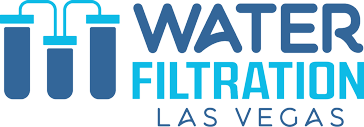
You know that you need to do something about your water supply because there is a strong presence of either hard minerals, chemicals, or other impurities. However, you are undecided on whether you should install a new filtration system for your entire home or a water softener. There are several things that you need to consider before making any decisions because you need to understand the unique biochemical properties of your water supply.
What we also want to do is explain the main differences between the filtration and water-softening processes. They perform different functions and they each serve a different purpose. You may need one of them and not the other, or conversely, you may require both of them. No matter where you live, your water supply will potentially contain chemicals and contaminants. Knowing exactly what it is that you need to remove is at the crux of the matter.
Whole Home Filtration
A filtration system for your entire home begins at the point of entry. This ensures that every water-using fixture in your home will be free of any contaminants or impurities. You also won’t have to install a filter on every individual sink, faucet, or showerhead. Filtration systems remove bacteria, chemicals, and other compounds from your water supply so that it’s a lot safer and healthier to drink.
Whole home filtration also effectively eliminates the presence of any nasty or unpleasant odors. It will greatly improve the taste of your water as well; chemicals such as chlorine or magnesium can render your water supply undrinkable. Overly-chlorinated water can also pose a health risk for you and your family, which is another reason why you should install a whole home filtration system.
Types of Water Filtration
Water filtration technology has made several significant advancements in the past several decades. More and more solutions are continuing to emerge and become available to the general public. Each one can benefit you significantly and make a difference in your daily lives. Having access to clean and fresh water plays a major role in your daily routine and it can greatly improve your quality of life.
Activated carbon is a process where pollutant molecules are trapped inside a large number of tiny pores in the filter. Activated carbon will effectively remove chlorine, sediment, and other volatile chemical elements from your water supply, which will greatly improve the taste and eliminate any awful odors. Carbon filters are inexpensive to obtain and install, and they do not require any electricity to work.
Reverse Osmosis (RO) is another method of whole home filtration that is extremely efficient in removing heavy metals, bacteria, and other harmful contaminants. The system utilizes a semi-permeable membrane through which only water molecules can pass. RO systems tend to cost a little more to install and they are favorable among many health-conscious households.
Ultraviolet (UV) purification is the process of killing off bacteria through high-frequency waves of light. When any water passes through the apparatus, the living elements and micro-organisms contained inside it are immediately killed. This includes parasites and viruses. UV filtration is a natural approach to purifying your water because it does not require any chemicals during the process.
Water Softeners
Did you know that over 85% of the cities in the United States have a problem with hard minerals in their water supplies? This is an astounding number, but it’s also a reminder that we need to protect ourselves. The best solution to treating hard water is by installing a water softener (obviously). It essentially functions as a filtration system for your home water supply but with a focus on hard minerals, particularly magnesium and calcium.
Water softeners will alter the chemical structure of the minerals inside your water supply to render it safe and potable. This is performed via an exchange process where salt ions will replace magnesium and calcium ions. This will prevent limescale from taking effect on your water-using appliances and plumbing fixtures. Mineral deposits tend to cling to certain surfaces, including the inside of your faucet and showerhead.
There are two types of systems: salt-based and salt-free water softeners. Many consider the salt-free process to be less effective because it functions more along the lines of a water conditioner. Salt-free systems will alter the chemical structure of the magnesium and calcium elements in your water supply, but it won’t remove them. This means also means that salt-free methods will not necessarily reduce the hardness of your water.
When it comes to hard water, water softeners are your best option. The size and capacity of your water softener will ultimately depend on your overall usage. Water softeners are extremely effective in extending the lifespan of your home appliances and reducing the amount of hard minerals in your water supply. Also, hard water can have a disastrous effect on your health; it can yellow your teeth and cause your skin to break out in a rash if you are over-exposed to it.
Conclusion
Whole home filtration and water softeners are completely different in terms of their application and usage. They both sort out and remove different contaminants, chemical compounds, and pollutants. The best thing that you can do is have a professional take a look at your water supply and home plumbing system to determine the option that makes the most sense for you. We recommend that you call us today and speak with one of our team members to learn more about whole home filtration and water softeners.
